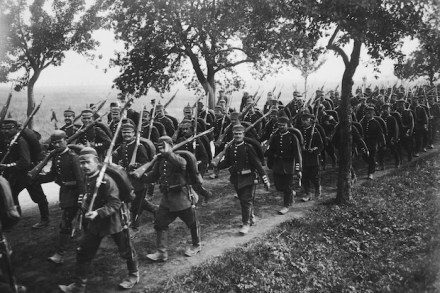The Spectator at war: Fortress Germany
From ‘How it looks to a German’, The Spectator, 17 April 1915: Try to imagine how things must look to a German who dares to put off the mask of self-complacency which the German people have deliberately worn ever since the beginning of the war and to face the facts, the whole facts, and nothing but the facts. Surely no nation in history ever had a more gloomy, nay, a more terrifying, prospect in front of them in spite of one or two apparent advantages. It is true that there is little or no fighting going on upon German soil, for the woes of Austria-Hungary in this respect do not



















